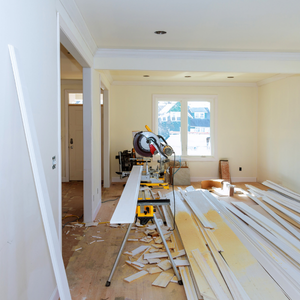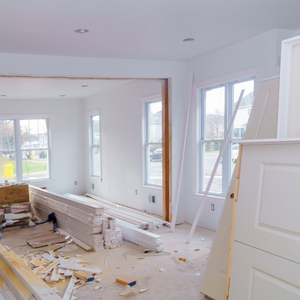
Navigating State Regulations on Selling Non-compliant Properties in Michigan
Michigan’s regulations on the sale of properties with code violations require sellers to comply with specific state laws, especially regarding non-compliant properties. In Michigan’s real estate practices, non-compliance is marked as a code violation; thus, it must be disclosed to the buyer during the mandatory seller disclosure statement.
As is the case with building codes along with local ordinances, sellers have to comply with and navigate compliance in selling a house in Michigan. Seeking the assistance of a certified real estate agent who has experience dealing with code violation problems can help you understand and know how to resolve these matters.
Seeking professional advice from legal experts or real estate lawyers can be beneficial in ensuring compliance when selling a property with code violations. Resolving code violations may require the seller to negotiate for repairs, price alterations, or sell the property as is while being aware of the diminished value and interest from potential buyers.
In understanding local laws and seeking professional assistance, realtors and sellers are able to better manage selling a house with code violations with guidance and support from Blue Moon Acquisitions throughout the process.
Legal Guidelines for Selling Properties with Code Violations in Michigan

Understanding the legal implications surrounding an attempt to sell a house with code violations in Michigan’s real estate market requires some understanding of the specific guidelines that govern such transactions. Like many other states, Michigan mandates sellers to disclose code violations, if any, to prospective buyers.
Disclosures are made as part of the seller disclosures mandated by the state with the intention of protecting both parties involved in the transaction. The seller is expected to fill in all relevant details concerning violations of zoning, building, or safety codes.
Having a Michigan-based real estate lawyer is equally important for sellers as it helps to navigate through the intricacies of selling a house with code violations. Besides, working with local governing bodies may assist in determining whether any pre-market listing corrections must be made.
Adhering to these legal frameworks while maintaining privacy allows sellers to streamline their transactions and sidestep unwanted legal entanglements in the future.
Assessing the Financial Implications of Selling a House with Code Issues
Evaluating the cost-benefit ratio is vital when contemplating placing a home with code violations on Michigan’s real estate market. The restrictions and underlying issues with the property may significantly lower its value and create barriers to interest from potential buyers.
It is also important for sellers to note that reduced offers are likely to result because these types of codes carry an economic burden that needs to be paid in order to remodel the property. However, ignoring annexed codes that are unresolved will attract fines which diminishes profit margins.
Every region has its own set of primary and secondary business codes, which makes understanding those nuances essential to an area’s market. An agent familiar with Michigan laws and the local real estate climate will prove helpful in complex situations in the market.
A direct correlation exists with the amount of repairs and how low the property’s sale price has been marked. This gives sellers the freedom to address violations rationally and thus helps maintain their finances.
Preparing Your Home for Sale Despite Existing Code Violations
It is pertinent to concentrate on particular improvements that could elevate buyer interest when selling a home with code violations in the Michigan real estate market. First, document the existing issues along with any code violations, and reach out to a real estate agent specializing in distressed properties to get tailored expert assistance.
Accomplishing small repairs like maintaining the overgrown lawn and improving the landscaping will directly improve the exterior look of the house, inviting more buyers. Furthermore, attention should be drawn to the spacious interiors and prime location, which can counterbalance the concerns about the code violations.
While negotiating with buyers, severe disputes should be avoided and therefore unresolved issues must be clearly articulated, keeping estimation for necessary repairs transparent. Buyers also appreciate receiving potential credits or negotiating damage concessions which could enhance the appeal of the home.
In Michigan, the real estate market is quite competitive and code violations do not have to negatively impact your home positioned as long as certain proactive measures have been put in place instead.
Marketing Strategies for Houses with Known Code Violations in Michigan
Selling a house with known code violations in Michigan’s real estate market needs specific focus to deal with buyers’ reservations while still attracting interest. Though exclusive features and location of the house can capture attention despite the legally-violating construction works.
Many buyers are looking for properties that can be turned into fixer-uppers, so highlighting a house’s investment potential is critical. Targeting contractors and real estate investors who specialize in buying homes that require a renovation or extensive makeover might prove beneficial.
Educating buyers about code violations builds trust, removes doubt, and enhances transparency. Showing estimates of repair costs, or even preliminary quotes from local contractors, demonstrates that mitigation is worthwhile and significantly bolsters buyer confidence.
Using virtual tours and premium images of the house alongside marketing it on digital platforms widens reach and attracts more buyers. Buyers often look for appealing elements of the home rather than flaws. Working with an experienced real estate agent who understands the intricacies of Michigan’s housing market adds value, providing additional exposure, trust, and direct connections for buyers looking for properties with potential.
Negotiating Sales Contracts for Homes with Code Compliance Problems

In Michigan’s real estate market, selling a house with code violations requires tactical negotiation skills to create sales contracts that resolve compliance concerns. For buyers, properties that require significant repairs can be a red flag; for sellers, it is paramount to showcase the house’s upside potential while pricing it attractively, including repair credits to incentivize buyers.
Focusing on local laws and collaborating with experienced agents helps outline contracts dealing with code violations, whether through pre-closing remediation or terms where buyers take responsibility after purchase through a buy-as-is agreement. Violations should not be hidden; a trustworthy negotiation framework is enabled through openly sharing violations alongside comprehensive inspection reports.
Engaging with legal professionals in the Michigan housing market reviews all terms for compliance against the law, protecting both seller and buyer in the transaction, and enabling smoother business in a competitive setting.
How to Price a Property That Has Unresolved Building Code Infractions
In the Michigan real estate market, pricing a property with outstanding building code violations involves striking a balance between appealing to prospective buyers and factoring in the cost associated with repairs. Begin with a comprehensive evaluation of the property’s condition and obtain quotes for each code violation repair.
Analyze how much value these infractions will lower the home’s worth. Work with a local real estate agent who specializes in homes that have compliance issues, as they possess a deeper understanding of how to competitively price the home.
Position the home relatively below the comparable Houses on the market, to reflect the value and work which needs to be done to make the house more usable. Along with the listed features, point out any characteristic of the home which might help lessen the concerns posed by the building code violations like the location or certain architectural elements.
Providing honest disclosure along with the projected numbers builds confidence, which will aid in selling the property regardless of the existing infractions.
Disclosing Code Violations to Potential Buyers: What You Need to Know
While selling a house in Michigan’s real estate market that has code violations, it is important to remain honest concerning the issues and disclose them to all prospective buyers. It is important to understand this is not only required by Michigan law, but also helps to build trust and can prevent legal headaches in the future. Legal matters always require a short and precise approach, whereas upfront action always provides a good picture.
Sellers should offer to buyers pertinent information detailing the code violations, as well as any structural alteration made to the property, if it complies with local building code or not. Having documents on hand such as inspection reports or municipal authority notices will help attest your disclosures and thus are advantageous to maintain. Ultimately, every seller must disclose their inspections and reports to ensure a smooth transaction.
When sellers acknowledge these violations and come forward with all paperwork signifying the condition of the house, they are better able to negotiate the terms of the property. A seller willing to forgo concealment of issues stands a better chance of anticipating the property’s value and assisting buyers in making informed choices. Such practice earns the seller a reputation as honest and forthright and thus averts inevitable friction necessitating lengthy negotiations prone to delay, especially in tightly contested real estate markets such as Michigan.
The Role of Home Inspections When Selling a House with Code Challenges
In Michigan’s real estate market, home inspections are especially important when selling a house with code violations. In the inspection process, an evaluation brings to light areas where the house does not comply with strict local building codes and illuminates issues around compliance that must be dealt with.
In the report, building compliance gaps are noted alongside possible solutions. This information is of utmost value to the seller when deciding whether to fix the problems or change their sales approach. Sellers can determine if the documented issues and suggested solutions will increase the property’s value or shift buyer perception during negotiation.
A shocking amount of trust can be fostered by showing that the seller has nothing to hide by having clear home inspection documents available. Proactively showing the buyers the reports can shift perception that the home is not only appealing, but it is also desirable despite the noted code violations. With Michigan’s professional and legal housing dynamics considered, every region offers different standards that, when procured, amplify the property’s value.
Exploring Repair Options Before Listing a House with Violation Issues
While navigating Michigan’s real estate market, determining a home’s appeal with outstanding code violations and repair considerations is valuable. Repairing code violations on the property is an unlimited opportunity that can unlock its potential market value.
Start with checks associated with plumbing, electrical work, and other potential structural issues. It is necessary to engage in all local safety regulations and prioritize measures most crucial for compliance within local governance.
Only licensed professionals knowledgeable about the state’s legal requirements may carry out the outlined remediation, and licensed contractors should be retained for repairs. Some repairs can be of minimal scope, while for substantial violations, considering making the sale price negotiable, along with providing selling credits, might be paramount.
Legal protective guarantees coupled with attracting buyers can be cemented by uncovering appealing factors that logical buyers stand to lose if thorough code compliance issues are left unexamined on the purchase.
Identifying Target Buyers for Properties with Existing Code Violations
In the context of the Michigan real estate market, selling a house with code violations requires precise targeting of buyers. These properties are frequently purchased by real estate investors and house flippers who have prior experience navigating renovations and compliance challenges.
Such purchasers typically seek assets that can be acquired at a bargain, after which they invest in rehabilitative work and realize the property’s value through resale or leasing. Additionally, first-time homebuyers willing to take on more demanding financing-dependent repair work may find these properties appealing.
Connecting with local contractors or developers who may be looking for properties requiring significant renovation as part of their strategic investments is also beneficial. Effectively marketing these claims entails promoting the potential value of the location, coupled with full disclosure of existing code violations, thereby managing buyer expectations from the outset.
Leveraging Cash Offers When Selling Homes with Building Infractions
In Michigan’s real estate market, utilizing cash offers when selling a property with code violations can prove beneficial. Cash purchasers tend to be more lenient and prefer to buy associated properties “as-is” when there are building violations.
These cash purchasers often include investors who buy properties to renovate and resell them or landlords looking to expand their rental portfolios. By marketing your property directly to cash buyers, you eliminate the traditional financing complications that often arise due to violations that would usually deter lenders.
Stressing the above-mentioned bypass to code financing, coupled with revealing the ROI-enhancing distressed condition and swift closing appeal for the property, can entice seasoned cash buyers. An agent who specializes in selling homes with building infractions will additionally aid in locating appropriate cash buyers.
Moreover, setting a competitive price based on the repairs needed while disclosing all violations will attract serious cash buyers looking to make a profit through renovations.
Tips for Quick Sales of Houses Facing Significant Violation Penalties
In Michigan, selling a house with code violations can be problematic within the prevailing real estate climate; however, there are certain approaches that can mitigate the violation penalties. To begin with, it is imperative to know the specific violations associated with your property and their scope.
Local real estate professionals who deal with these matters on a regular basis will likely be very helpful. It would also be worthwhile to get an inspection done which depicts all violations as that will build credibility with prospective buyers.
Adhering to proper home pricing strategy is necessary and both enforcement of the repair cost basics and the violation risks need to be incorporated within the asking price. Promote the structure with its distinctive attributes to appeal to cash buyers or investors willing to renovate.
A few other compelling approaches include covering part of the closing costs, offering repair credits, or selling the home “as is.” These approaches will appeal to those who are willing to take the repairs head on.
In any case, working with a good realtor who specializes in the area ensures that the complicated regulations in Michigan’s housing law are properly addressed which will make the negotiations and transactions smoother. This will make the different obstacles from the code violations much easier to handle.
Avoiding Common Pitfalls When Selling Non-compliant Properties in Michigan
In Michigan, selling a house with code violations can be problematic; however, avoiding certain issues may facilitate a smoother process. To begin with, make certain you comprehend all of the code violations that pertain to your property.
Hire a home inspector that is trained with Michigan building codes and has experience in evaluating the specific violations. Trust is vital; inform your potential buyers about all violations so they can decide whether or not to proceed, enabling you to avoid future difficulties.
Unfortunately, homes that have code violations bear less value than compliant homes. Therefor, pricing your property competitively is crucial. Also, consider paying some of the repair costs or offering seller concessions in exchange for the buyer upgrading the home to make it more appealing.
Through listing with an agent specialized in selling non-compliant homes in Michigan, you are likely to receive sound advice on compliance issues and how best to bargain with prospective buyers. In addition, look for other selling avenues like cash buyers and investors who buy homes without the need for extensive negotiations over repairs and provide a faster closing date.
Following these steps should enable you to successfully and strategically market your non-compliant property in Michigan’s real estate market.
Can You Sell a House That Isn’t Code?

Working within Michigan’s real estate market can be difficult when selling a house with code violations, but the challenges can be alleviated with a little effort. Knowing how to deal with such obstacles is vital for selling a house that is not up to code.
Firstly, paying attention to the details of the sale is equally crucial for disclosing any code violations to potential buyers. In the long run, being upfront about them can save legal challenges. In Michigan, a buyer’s market usually consists of homes needing renovations; thus, houses with code violations are a matter of concern for sellers.
Draw attention to waitlisted housing projects or homes needing a facelift; these can always fetch a good price for suburban developers looking for expansion drives. In addition, it can help the home seller greatly if they are willing to offer estimates to the buyers as well.
Not only does this approach make you admirable among buyers, but it also makes them feel they are not over. The right real estate agents with good relationships and knowledge about Michigan’s ‘Housing Codes and Rules’ and ‘ Market-Sectors’ can also achieve a good sale in a relatively shorter time.
With these principles in mind, you can sell the houses while maintaining the core strategies underlying Michigan’s real estate market and even sell your home for cash in Eastpointe or nearby cities.
Can You Sell a House with Unpermitted Work in Michigan?
You can sell a house with unpermitted work in Michigan, but you must tread carefully within the real estate landscape and state boundaries. For houses that have violations of the local codes or unpermitted work, it is important to disclose the issues to all prospective buyers so that transparency is maintained.
In the Michigan real estate market, sellers are expected to provide proper disclosures for any permitted alterations and changes to the property that may impact its worth or pose safety risks. Buyers themselves may require inspections for deeper understanding of the violations which would affect the negotiations and final pricing.
Selling a property with these issues requires these steps: collaborate with a real estate expert and get sufficient knowledge of local regulations, help to maneuver through buyer concerns, and obtain retroactive permits if required. Furthermore, revising the asking price, offering lower sale price, or offering credits for repairs could increase the attractiveness of the property, despite the issues.
These calculated measures will enable a seller to fully capitalize on selling a home in the Michigan market, even with unpermitted work or code violations, and provide the opportunity to sell your home for cash in Detroit or nearby cities.
Selling a home with code violations can feel overwhelming, but it doesn’t have to be. Whether you’re facing fines, safety issues, or unpermitted work, Blue Moon Acquisitions can help you sell quickly without the hassle of costly repairs. We provide fair cash offers, manage all the paperwork, and guide you through a smooth, stress-free sale. Have questions, or are you ready to move forward? Contact us at (586) 209-3290 for a no-obligation offer. Get started today!
Useful Michigan Blog Articles
- Real Estate Attorney Fees For Home Sellers In Michigan
- Who Pays Closing Costs When Selling A Home In Michigan
- Selling A Michigan Home With Unpermitted Work
- Sell A House With Code Violations In Michigan
- Selling Your House During Divorce In Michigan
- Selling A Michigan House With Foundation Issues
- Essential Paperwork For Selling Your Michigan Home By Owner
- Expert Tips For Selling A Fire-Damaged House In Michigan
- Understanding Squatters’ Rights In Michigan
- Who Is Responsible For Paying Taxes When Selling A House In Michigan?
- Selling A Michigan Home Needing Repairs Without Renovations
- How To Sell Your House And Continue Living In It: A Guide For Michigan Homeowners

| INSURANCE | PREMIUMS | INSURANCE PREMIUMS | EMAILS | REALTORS | LIENS |
| PROPERTY VALUE | PROPERTY APPRAISAL | APPRAISAL | HOME INSPECTORS | NATIONAL ELECTRICAL CODE | NATIONAL ELECTRICAL CODE (NEC) |
| MORTGAGE LOANS | LOANS | LENDING | HEALTH | WIRING | ELECTRICAL WIRING |
| BATHROOMS | SMOKE ALARMS | SMOKE | GFCI | GROUND-FAULT CIRCUIT INTERRUPTER | IRC |
| HOMEOWNERS ASSOCIATIONS | HOA | HOMEOWNERS ASSOCIATIONS (HOAS) | HOMEOWNERS INSURANCE | HOMEOWNER’S INSURANCE | DO-IT-YOURSELF |
| DIY | DO-IT-YOURSELF (DIY) | CONSTRUCTION | WINDOWS | ROOF | PRESSURE |
| MONEY | MOISTURE | LEVERAGE | KITCHEN | JURISDICTION | INVESTING |
| INTERNATIONAL RESIDENTIAL CODE | INTERNATIONAL CODE COUNCIL (ICC) | HEATER | HANDRAILS | GLAZING | COMMUNICATIONS |
| TO A CASH | GET A CASH | A CASH OFFER | A CASH BUYER | GET A CASH OFFER | TO A CASH BUYER |
| PROPERTY WITH CODE VIOLATIONS |
